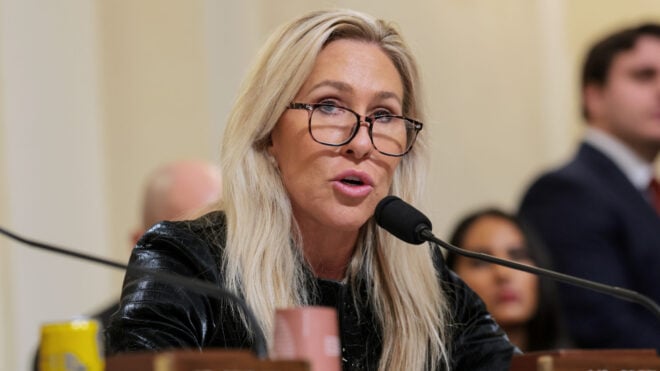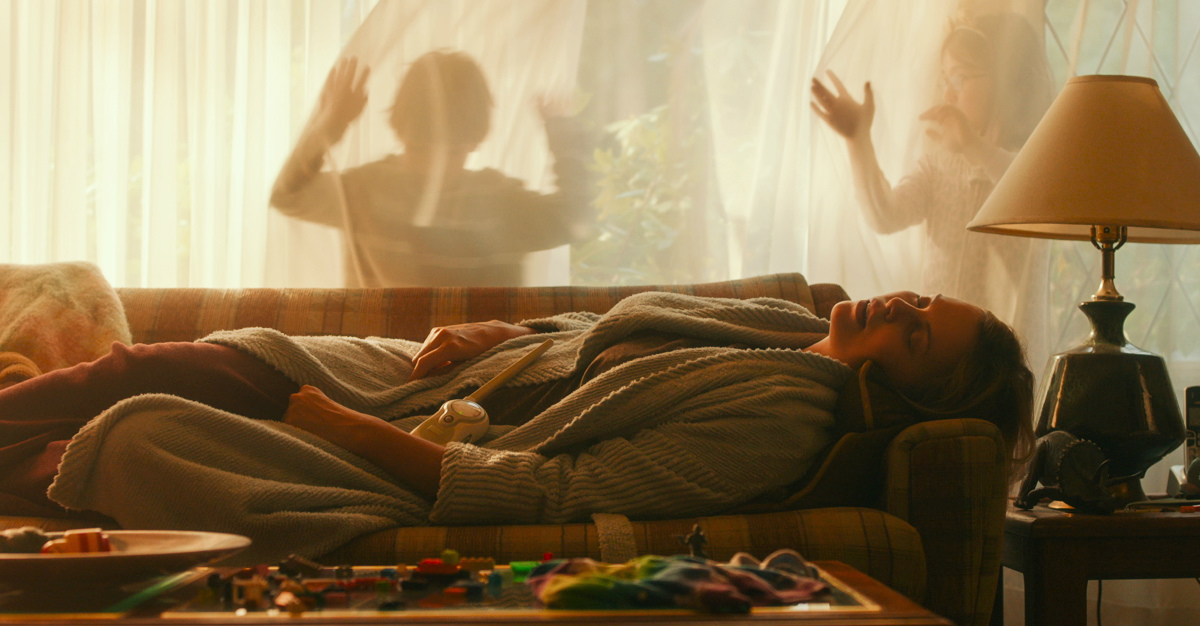
Being a mom is hard. Like, really, really hard.
Tully, the new film by Diablo Cody (Juno, Young Adult) gets right to the heart of just how hard mom-life is. Marked by Cody's signature biting wit and off-beat but very real worldview, the film stars Charlize Theron as Marlo, a middle class mom of three who is starting to sag under the weight of her parental responsibilities—and the considerable burden of growing up, in general.
When her bougie older brother (Mark Duplass) offers to pay for a night nurse to help Marlo and her kind but not-terribly-present husband Drew (Ron Livingston) out with their newborn, she at first rebuffs the gift. She eventually relents. Enter the title character (Mackenzie Davis), a young, nubile, free-spirit who shakes up Marlo's staid world in all the right ways.
We sent two LittleThings staffers who, though close in age, are at very different life stages, to check out Tully and report back. Below, senior editor Alex Cavallo (33 and very much childless) and producer Erika Santos (34 and the mother of an adorable 5-month-old) talk about their reactions to the movie, which hits theaters May 4. (No spoilers, we swear!)
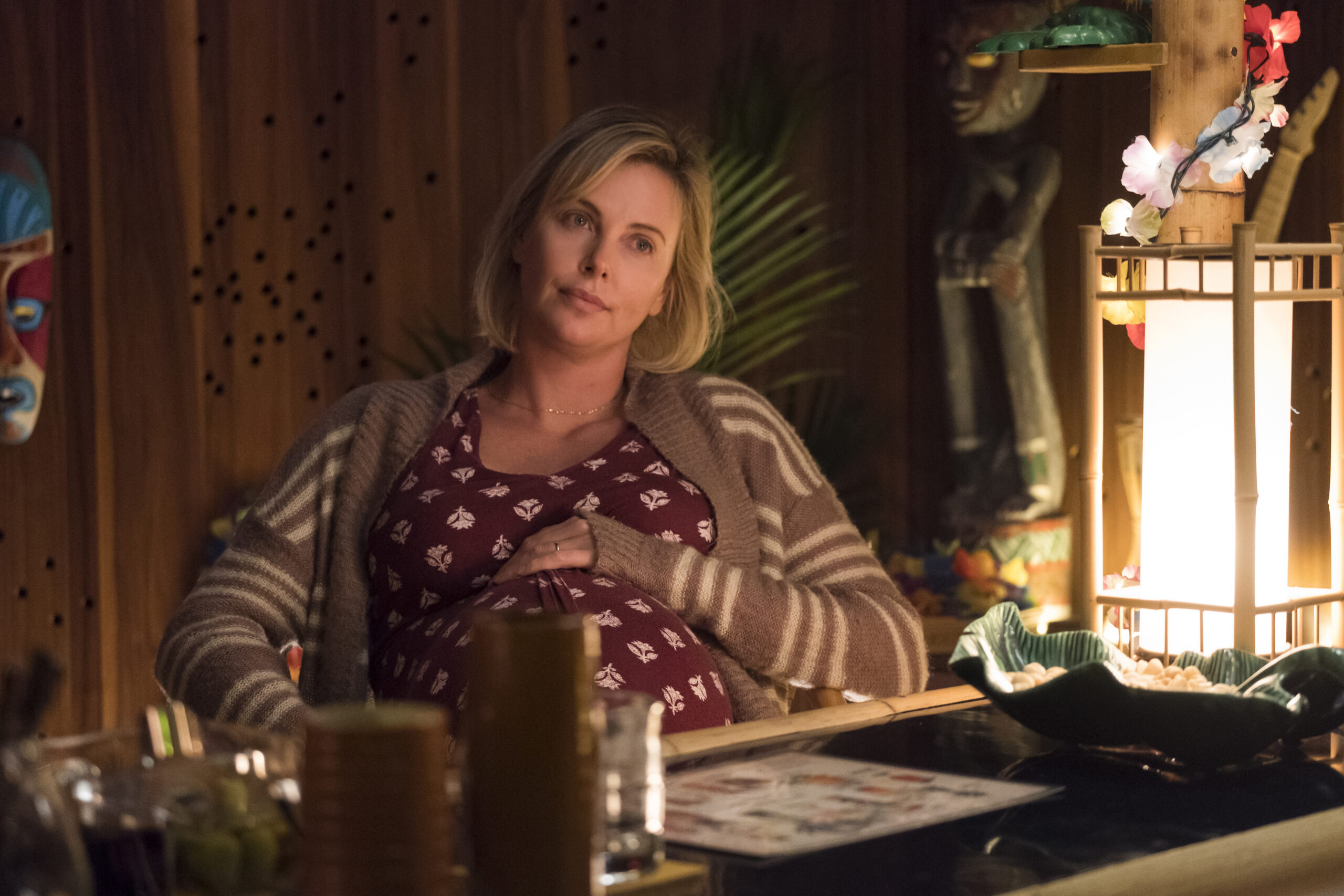
What were your expectations going in to see the movie?
Erika: I expected it to be about a mom who has completely lost her identity, which is exactly what is was about. However, I wasn't expecting it to be as funny as it was. The comedic timing was great.
Alex: I thought it was going to be more about her just straight up being an exhausted, worn down mom who is at the end of her rope, and isn’t really receiving a whole lot of help from her husband. I knew it would be dryly funny, and a bit irreverent, since the script is by Diablo Cody, but I was also still surprised by how many times I laughed out loud. At the same time, it was also darker than I thought—but I liked that.
How did you feel about Charlize Theron's character Marlo when you were first introduced to her?
Alex: Oh man. I felt at once really bad for her and really stressed out by her life. It also made me glad I was going home to a kid-free apartment after the movie!
Erika: When first being introduced to Marlo, I felt sad for her because she seemed so stressed out, and just on the verge of ending her entire life.
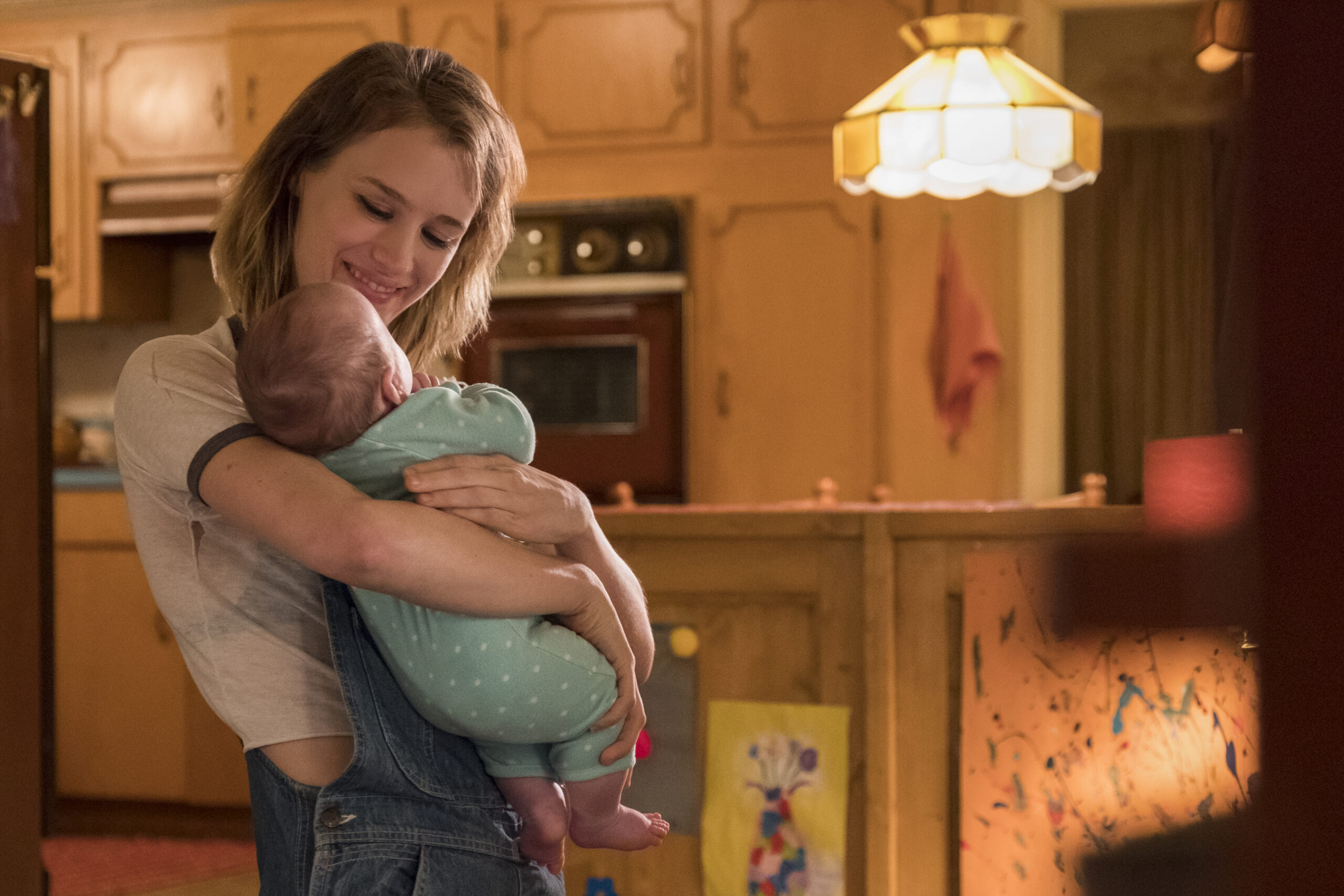
Who did you relate to more, Marlo or Tully?
Erika: I could relate to Marlo more due to the fact that I am a new mother and I can understand what some of those trying moments feel like. I can relate to being sleep deprived and wearing diapers after you have given birth, and feeling like your body isn't yours anymore. You don't even recognize yourself in the mirror. But I can also relate to Tully in a sense, because even though I am a mother now, that’s not all that I am. I’m still me, but with a little person that I gave life to. I am still a free spirit who enjoys life with and without my child.
Alex: As a non-mom—and frankly, still kind of a giant baby myself—I definitely related more to Tully. I feel like I’m in that stage of way-delayed adolescence that Tully also seemed to be in…only Tully is supposed to be in her 20s and my arrested development is creeping into my early 30s, lol. That said, I have a lot of friends who are moms already, or are pregnant now, and I am starting to feel that angst that Marlo had about how you feel different in your 30s and everything isn’t so fun and free and easy anymore. I’m having existential angst just reviewing this movie!
When Marlo ran into her former roommate at the cafe, did you feel her embarrassment and sense of failure, or did you relate more to the hipster roommate's perspective?
Erika: I actually could relate more to the roommate. Never once during my pregnancy or after giving birth have I ever felt like a failure. That’s probably because I have done many things—I have set as goals in my life and still continue to set goals and accomplish them even now that I’m a mom. What I sensed in that scene wasn’t that Marlo felt embarrassment or failure, I felt that she made a choice to be married and become a mother, and her former roommate made the choice not to. They both seemed like they maybe should have made different choices. The roommate said something that stuck out to me before she left the cafe: "My dark uterus and I should get out of here." She chose to live a certain life and now she’s missing out on motherhood.
Alex: Interestingly, I related more to Marlo. Well, maybe I didn’t relate, per se, but I felt like I could feel her discomfort in that moment. I recently moved back to New York from Boston and I’m currently living in Long Island (aka the ‘burbs—and hopefully not for long) and I always feel a little lame when I have to tell someone I haven’t seen in awhile where I’m living, like it doesn’t sound as cool as I want it to. I think for Marlo and her ex-roomie, it’s sort of a grass is always greener situation. That’s pretty true of life for everyone, I think. Plus, as humans we all compare ourselves to others way too much. Thanks, social media! By the way, I just Googled the word for feeling someone else’s discomfort or shame and the German word is “fremdschämen.”
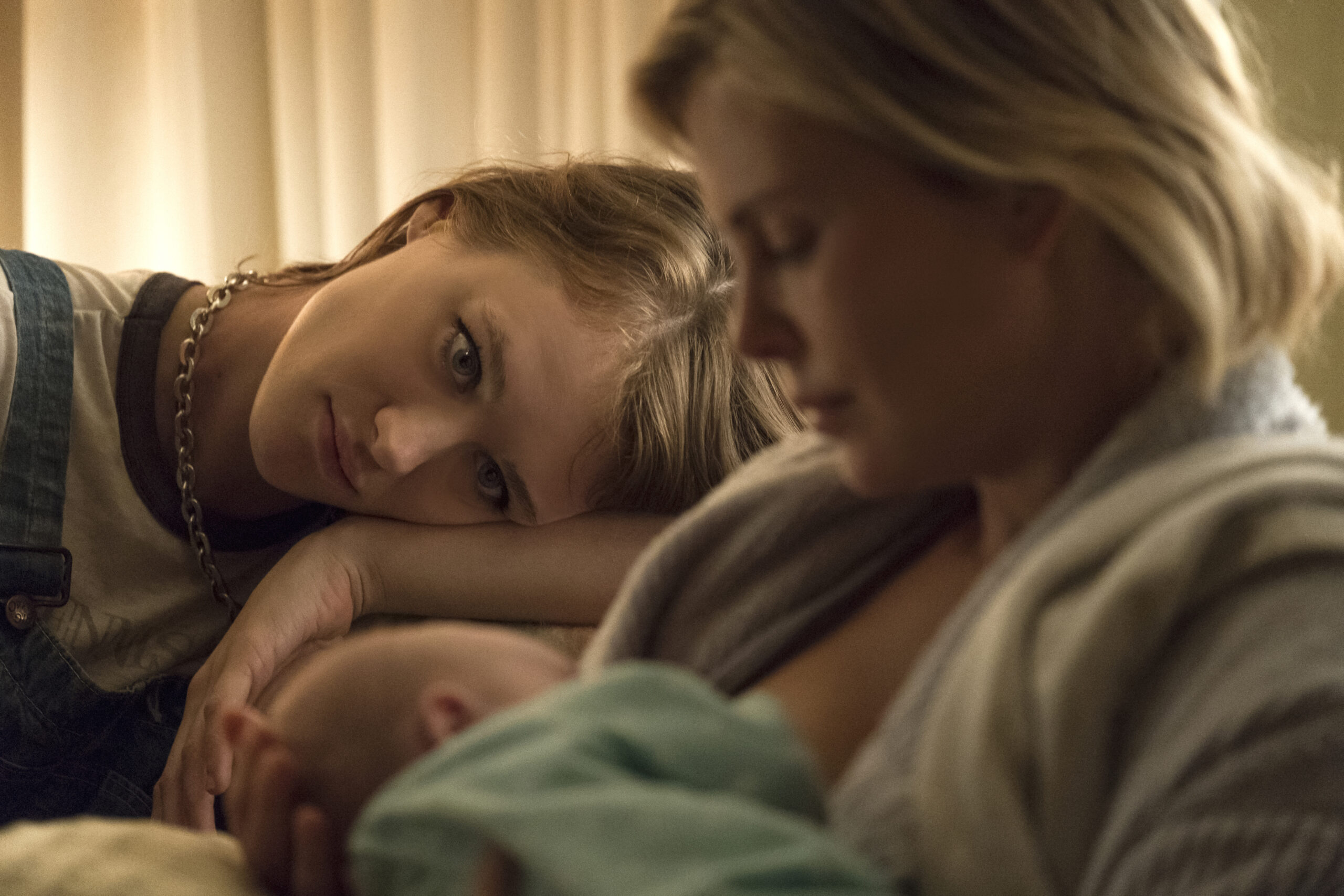
Which moments or lines from the film really resonated with you?
Erika: There were two moments in the movie that made me want to cry because I knew what Tully was trying to say. In one scene she tells Marlo to kiss baby Mia goodnight, because in the morning she will be different. I understood that so much because your baby goes to bed looking and acting one way, and the next day their facial features have changed, and now, instead of silence, they start to babble. Another scene that resonated with me is when Tully is explaining that a baby's DNA lives inside the mother’s system for years. You always feel them inside you, even when they no longer are. My daughter is 5 months old, and sometimes when she cries I get a feeling in my stomach that I can't quite explain, but it’s a feeling that reminds me that her and I were once one.
Alex: Well, there was the aforementioned scene, where I could relate to Marlo feeling lame and suburban compared to her cool, ex-roommate, who was still living the single rockstar life in Brooklyn. Also, I totally had feels during that climactic scene where Marlo loses it and yells at Tully that her “free spirit thing” won’t be as cute in her 30s and beyond. As a 33-year-old still living like a 23-year-old, I kind of cringed a little.
Which moments made you angry?
Erika: The moment that made me furious was when the school principal said that her son wasn't being expelled, it was just a “dismissal.” It’s basically the same thing, she was just trying to say it in a nice way. They couldn't handle Marlo's son at that school and they didn't want to have to handle his anxiety issues, even though they kept making it a point to say how much they love Marlo's son and their family.
Alex: That scene made me angry too. But also, it seemed to me that her son might have undiagnosed autism, or could be on the spectrum. I wondered why they didn’t address that, but then also thought that might have been intentional—tying into the all the gray areas that life contains for all of us.
Do you feel like this was an accurate representation of motherhood, and of growing up and settling down in general?
Erika: I feel there were certain parts that were accurate about motherhood, however, I don't feel that everyone who is a mother of one child, or even three or more children feels like this. Not every mother handles life the way Marlo did. She allowed motherhood and being a wife to consume her, and her happiness. I think there are mothers who play many different roles, they are good at all of them and know how to keep marriage and motherhood and being an individual very separate.
Alex: I can’t speak to the representation of motherhood—though I did recently spend a week visiting a friend with a newborn and I can attest that it seems messy and exhausting—but I think it really hit the nail on the head when it comes to growing older and finding a way to come to terms with your younger self’s expectations about the future and the realities of adult life. And coming to terms with being okay with where you’re at in life, no matter where you are or what choices you made.
So, were you surprised by the way the movie played out?
Erika: I wasn't surprised by the way the movie played out. I wasn't surprised by who Tully really was, and how Marlo went about her life as a wife and mother. I felt that any mother watching this film could take something from it and relate to it.
Alex: I will say, without revealing any spoilers, that I did not see the twist coming, and I always see the twist coming! Well done, Tully.



